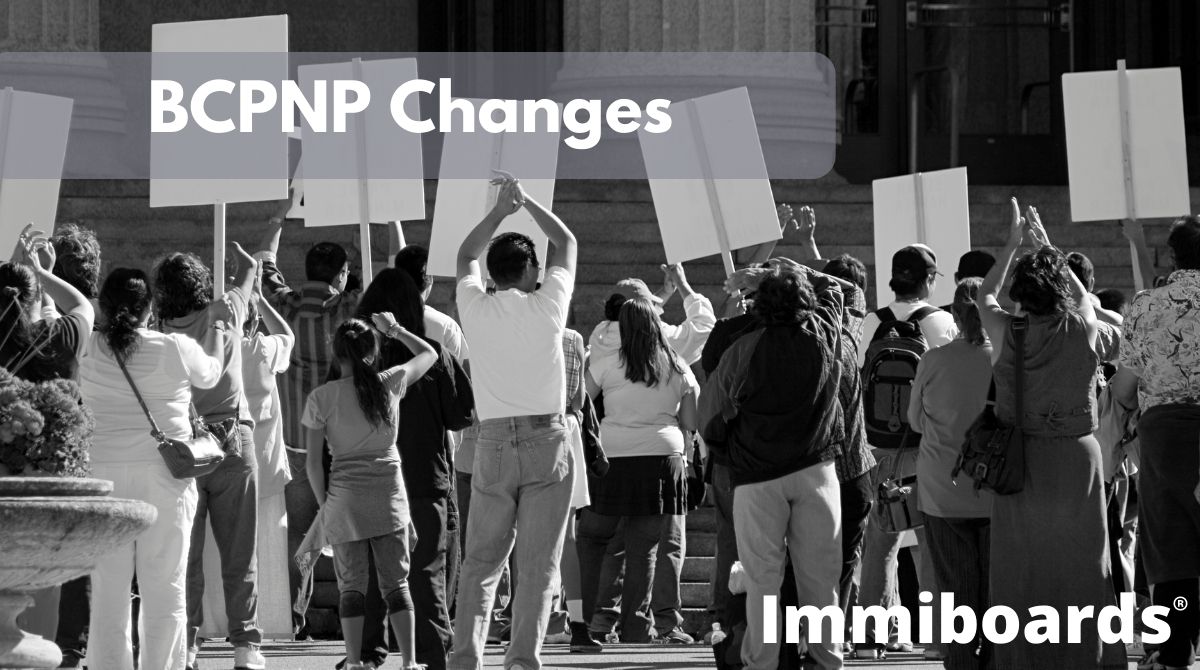In this blog post, we will answer a critical question about disclosing information to IRCC due to changes in personal circumstances such as marriage after ITA. We often get queries from members about whether they need to inform IRCC if they got married after applying for permanent residence in Canada or what to do in case of marriage after ITA. The simple answer is “Yes.” You must tell IRCC about this change in your relationship status and family composition as it can impact your application.
If you do not tell IRCC about this change and later on they find out, it can result in a refusal of your application, and you can be banned from applying for permanent residence for up to five years. Therefore, it is always better to be safe than sorry and inform IRCC about any changes in your personal life as soon as possible.
What happens if I get married after applying for Canadian PR?
IRCC requires that you disclose any changes to your application, including information about dependent spouses. You’ll then have an option of whether or not they should be added as dependents on their own applications; however, several documents will need signing (including forms and police certificates).
What if I get married after getting ITA?
If you get married after applying for getting ITA, you still need to update your family information with IRCC. Technically, your family composition has changed so even if your spouse is not accompanying you to Canada, they will have to be checked for admissibility. Your admissibility depends on your spouse’s admissibility as well. Hence, this is a mandatory step that you must complete even if your spouse will not accompany you to Canada.
Do I need to inform IRCC about my marriage after ITA?
Yes. you must inform IRCC about your marriage after ITA. This is not optional. This is something that you must do as per current Canadian immigration rules.
What is a change in family composition and under what situation I need to inform IRCC?
If you read your AOR letter, it states that under below conditions, you must inform IRCC by raising a web form:
- Change in personal circumstances [a.k.a change in family composition]
- e.g., birth or adoption of a child, marriage, divorce, death of a spouse etc.
- Change in an email address, mailing address, or phone number
- Change immigration representative
- Withdrawing your application
- Losing a job offer or losing a provincial or territorial nomination
- only if the job offer or nomination was the basis of your ITA
How do I check the status of my spouse in my immigration application?
To check the status of your spouse in your immigration application, you can log in to My Account and view their details. If they are not listed as a dependent on your application, then this means that IRCC has not yet processed their information. As per current Canadian immigration rules, spouses must be admissible to Canada. Which means they must meet the medical, criminal, and security requirements. If they do not meet any of these requirements, they will be considered inadmissible to Canada, which will directly impact your PR application.
If you can view your spouse’s name and spouse’s biometrics, you are on the safe side. However, do not travel to Canada without updating your family details with IRCC.
My spouse is not accompanying me to Canada. Do I still need to update IRCC after I receive my COPR?
Yes, you still need to update IRCC even if your spouse is not accompanying you to Canada. This is because your family composition has changed, and IRCC needs to be aware of this change. If you do not update IRCC, it can result in a refusal of your application, and you can be banned from applying for permanent residence for up to five years. Therefore, it is always better to be safe than sorry and inform IRCC about any changes in your personal life as soon as possible.
Can I add my spouse to my PR application after ITA?
You can add your spouse to your PR application after receiving an ITA. First, however, they will need to be checked for admissibility. This means that your spouse must meet their medical, criminal, and security requirements for them to be considered admissible to Canada. If they do not meet these requirements, they may be deemed inadmissible to Canada.
If you have any more questions about this topic or would like to discuss your specific situation in detail, please feel free to book a consultation with a Canadian Immigration Lawyer.






